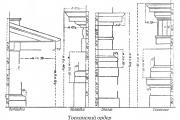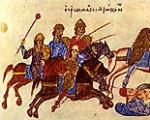Disability can be registered if there is:
- health impairment with persistent impairment of body functions caused by diseases, consequences of injuries or defects;
- limitation of life activity (complete or partial loss by a citizen of the ability or ability to provide self-care, move independently, navigate, communicate, control one’s behavior, study or engage in work);
- the need for social protection measures, including rehabilitation and habilitation.
The decision to recognize a person as disabled is made based on the results of a medical and social examination (MSE).
Depending on their health status, adults are assigned disability group I, II or III, and children under 18 years of age are assigned the category “disabled child.”
2.
How to get a referral to the Bureau of Medical and Social Expertise?
Referrals for medical and social examination are issued by medical organizations (the legal form of the medical organization and your place of residence do not matter).
When determining whether you have signs of disability, your doctor should rely on diagnostic studies, results of treatment, rehabilitation and habilitation. Therefore, it is best to contact your attending physician for a referral to MSA. But you can also go, for example, to the chief doctor of the medical organization where you are being treated.
By Government Decree Russian Federation dated February 20, 2006 No. 95 “On the procedure and conditions for recognizing a person as disabled.”
">the law, if a person needs social protection, social protection authorities and pension authorities can also issue a referral to MSE, but only if they have medical documents that confirm impairment of body functions due to diseases, consequences of injuries or defects. In practice, this means that you will still have to contact a medical organization. If you are denied a referral, request that you receive a written refusal. With this certificate, you have the right to contact the ITU office yourself. In this case, the staff of the ITU bureau will prescribe an examination for you, and based on its results they will determine whether there is a need for a medical and social examination.
After you receive the referral, you will need to sign up for a medical and social examination at the ITU office.
3.
What documents are needed to register a child for ITU?
To register your child for a medical and social examination, you will need:
- application (children over 14 years of age fill out and sign the application on their own; for children under 14 years of age this must be done by legal representatives);
- identification document (for children under 14 years old - birth certificate, for children over 14 years old - passport);
- medical documents indicating the citizen’s state of health (outpatient card, hospital extracts, consultants’ reports, examination results - usually issued by the doctor who issued the referral for medical examination);
- SNILS;
- passport of the parent or guardian;
- to the guardian (representative of the guardianship and trusteeship authority) - a document establishing guardianship.
4.
What documents do adults need to register for ITU?
To sign up for a medical and social examination, you will need:
- application (can be filled out by both the citizen himself and his representative);
- identity document (original and copy);
- referral to medical examination issued by the attending physician;
- employment history(original and copy);
- professional and production characteristics from the place of work - for working citizens;
- medical or military medical documents indicating the citizen’s state of health (outpatient card, hospital extracts, consultant reports, examination results, Red Army or military record book, certificate of injury, etc.);
- SNILS;
- if the documents are submitted by a representative - a power of attorney for the representative and his passport.
In some cases it may be necessary Additional documents(depending on the specific case):
- act on an industrial accident in form N-1 (certified copy);
- who occupational disease(certified copy);
- conclusion of the interdepartmental expert council on the causal relationship of the disease, disability with exposure to radioactive factors (certified copy, original presented in person);
- ID of a participant in the liquidation of the consequences of the accident at the Chernobyl nuclear power plant or living in the exclusion or resettlement zone (copy, original presented in person);
- For foreign citizens and stateless persons permanently residing on the territory of the Russian Federation - a residence permit;
- for refugees - a refugee certificate (to be presented in person);
- for nonresident citizens - a certificate of registration at the place of residence;
- for those dismissed from military service- a certificate of illness drawn up by the VVK (certified copy, the original must be presented in person).
">additional documents. An application for a medical and social examination can be considered up to one month from the date of submission of the application.
5.
Which ITU office should I contact?
Medical and social examination carried out at the ITU office at your place of residence. In some cases, MSE may be carried out:
- in the ITU Main Bureau - in case of appeal against the decision of the bureau, as well as in the direction of the bureau in cases requiring special types examinations;
- in the ITU Federal Bureau - in case of appeal against the decision of the ITU Main Bureau, as well as in the direction of the ITU Main Bureau in cases requiring particularly complex special types of examination;
- at home - if a citizen cannot come to the bureau (ITU Main Bureau, ITU Federal Bureau) for health reasons, as confirmed by the conclusion of a medical organization, or in a hospital where the citizen is being treated, or in absentia by decision of the relevant bureau.
6.
How is the examination carried out?
During the examination, the bureau’s specialists will study the documents you submitted and analyze social, professional, labor, psychological and other data.
In some cases, ITU specialists may prescribe additional examination for you. You can refuse it. In this case, the decision to recognize you as disabled or to refuse to recognize you as disabled will be made based only on the data you provide. Your refusal will be reflected in the ITU protocol, which is maintained during the examination.
At the invitation of the head of the bureau, representatives of state extra-budgetary funds, Federal service on labor and employment, as well as specialists in the relevant profile (consultants). You also have the right to invite any specialist with his consent, he will have the right to an advisory vote.
The decision to recognize a person as disabled or to refuse to recognize him as a disabled person is made by a simple majority vote of the specialists who conducted the medical and social examination, based on a discussion of the results of the medical and social examination.
Based on the results, a medical and social examination report is drawn up. You have the right to request copies of both the act and the protocol.
In addition, the bureau’s specialists, after conducting a medical and social examination, will prepare an individual rehabilitation and habilitation program (IPRA) for you.
7.
What documents are issued after the examination?
A citizen recognized as disabled is issued:
- a certificate confirming the fact of disability, indicating the disability group;
- individual rehabilitation or habilitation program (IPRA).
A citizen who is not recognized as disabled, at his request, is issued a certificate of the results of a medical and social examination.
If it is necessary to make changes (new personal data, technical errors) to the IPRA or if it is necessary to clarify the characteristics of previously recommended types of rehabilitation and (or) habilitation measures, there is no need to undergo a new medical and social examination. It is enough to write an application to the ITU bureau that issued the document. You will be given a new IPRA.
The date of determination of disability is the day the bureau receives an application for medical examination. Disability is established until the 1st day of the month following the month for which the next ITU (re-examination) is scheduled.
How to successfully pass an examination in medical and social examination institutions?
Many patients who apply for the first time to medical and social examination institutions remain dissatisfied with the decisions made and the examination procedure itself, since they are forced to complete additional documentation and undergo additional clinical and laboratory examinations.
Some simple tips will help in solving such problems.
First of all, it is necessary to check the correctness of the documentation that will be submitted for examination.
A referral for a medical and social examination (your main document), drawn up in a medical and preventive institution (MPI) at the place of observation and treatment, must be certified by the seal of this institution and at least 3 signatures of doctors (including the signature of the chairman of the medical commission or the chief doctor).
Extracts from hospitals must be certified by their seals (having only a corner stamp and the doctor’s personal seal is not enough).
Check the correctness of the passport data in the above documents, since an error in even one letter will invalidate them.
Make photocopies of all hospital extracts and attach them to the referral for medical examination, preferably in chronological order. For examination, be sure to take the originals of all hospital extracts and other medical records. documents (ITU experts will check them with photocopies and the originals will be returned to you).
The results of your observation and treatment in an outpatient setting are important in the examination, so the outpatient card should be with you. If there are ambulance call tickets, they must be attached to outpatient card(it is advisable to photocopy them as well).
If you have pathologies of the musculoskeletal system (fractures, arthrosis-arthritis, spinal pathology), you should take with you x-rays- preferably fresh (no more than 1 month before the date of examination). In this case, the direction to the ITU should contain a description of them. If there are a lot of pictures (take everything you have - it is important to assess the dynamics of the disease) - it is advisable to put them in chronological order. If you are suffering hypertension and there are crises on the outpatient card - you can carefully make bookmarks with colored stripes (stickers) on the pages where they are recorded - this should be done in the last 12 months before the examination.
If for Last year there were sick leaves - it is advisable to write them out on a separate sheet - from what date and to what date, indicating the diagnosis and duration in days. Unfortunately, doctors at health care facilities do not always fill out this item in detail and accurately when sending it to the medical examination.
If there are conclusions of narrow specialists (consultations: cardiologist, pulmonologist, nephrologist, gastroenterologist, orthopedic traumatologist, neurosurgeon, etc.) - obtained in other medical institutions- they must also be certified by the seal of these health care facilities (and not just the personal seal of the consulting doctor). Check the dates of issue of the conclusions and passport data in them.
Information about your education may be required - for students - a certificate of education from educational institution, for the rest (especially young people of working age) - a copy and original (bring it with you) of an education diploma.
The work record book (or its copy certified by the HR department) is also provided to the ITU. It is also advisable to make a photocopy of your passport (the original, of course, must be with you). For workers - a production description, indicating working conditions and how the patient copes with his duties (the date of its preparation must be indicated and must be certified by the seal of the enterprise).
You must be mentally prepared for the fact that the decision made may not coincide with the one you expect. You should not rely excessively on the opinions of medical doctors, who sometimes allow themselves to express an opinion about the specific disability group you are entitled to. This is the most common reason conflict situations arising in the process of announcing an expert decision.
The attending physicians do not have the appropriate expert training and should not “tune” the patient to a certain specific decision. They bear absolutely no responsibility for what they say in orally opinion about which group is appropriate for a particular patient. In contrast, medical experts draw up an expert medical file for each patient, where they justify their decision in writing with reference to the relevant regulations, certify it with their signatures and the seal of the ITU institution, and bear full legal responsibility for it. This important point should be very well understood.
It is advisable to take a clean sheet with you to the examination, since during the examination while lying on the couch, you will need it.
You can take interesting book so that waiting to be called into the meeting room is not tiresome. It is not advisable to take a player or radio - you may disturb others, and if you use headphones, you will not hear how they invite you.
The right of priority call is enjoyed by: WWII veterans, WWII disabled people and liquidators of the Chernobyl accident. Therefore, if you belong to one of the above categories, you should inform the commission about this.
Take it with you medicinal preparations, which may be useful to you when waiting for a call for a long time, first of all this applies to patients diabetes mellitus, hypertension and ischemic heart disease. The duration of the examination can vary from several tens of minutes to several hours, depending on the workload of the ITU institution.
Therefore, you should be prepared for a possible long wait.
The most severely ill patients, who are unable to come to an ITU institution for examination, are examined at home (very rarely and in cases of exceptional remoteness of the patient, a decision can be made in absentia - based on documents). In this case, the referral for medical examination is accompanied by a certificate from the Medical Commission (medical commission) stating that for health reasons the patient cannot appear for examination. It is advisable for elderly and seriously ill patients to come accompanied by relatives - who, if necessary, will help them get dressed and undressed during the examination, complement their complaints, and supervise their return home.
Given the high workload of most ITU institutions, you should prepare in advance to answer the questions that will be asked during the certification process.
Experts, as a rule, first get acquainted with your honey. documentation - therefore, during the communication process, only the necessary clarifying questions are asked.
You should answer the question posed precisely, avoiding, if possible, unnecessary details. As a rule, questions are asked about the onset of the disease, how it progressed, whether (when, where and how many) there were inpatient treatments, operations (their dates), the effect of the treatment and your personal plans regarding employment (do you consider yourself completely disabled, do you intend to find an easier job or plan to continue treatment on sick leave). Questions are asked about outpatient treatment- what medications, in what dosage, the patient takes daily.
After questioning the complaints, the patient is examined by experts, if necessary, in a lying position on the couch. The details of the examination depend on the specific diagnoses of the patient. In most cases, the patient is asked to undress down to his underpants. After the examination, the patient is asked to wait in the corridor, at which time the specialists collectively, during a joint discussion, make an expert decision. Then the decision made is announced to the patient.
It is possible that you will be offered further examination - if the experts consider that it is important to obtain additional information, characterizing the state of your health.
In this situation, it is advisable, if possible, to agree, since it is in your best interests to obtain additional information about the state of your health and thereby increase the accuracy of the decision made. However, you have the right to refuse further examination - in this case you will be asked to write a written refusal and the decision will be made on the basis of available documents and data from an objective examination.
Do not forget that if you are recognized as disabled, your pension and other benefits will be accrued from the moment the examination begins (if you have a second examination, i.e. if you have previously been recognized as disabled). The beginning of the examination is considered to be the day of registration at the ITU institution of your documents (application with a request for examination with a referral to the ITU attached to it).
If you are recognized as disabled for the first time, then your pension will begin to be accrued not from the date the examination begins, but from the date of writing the application for accrual of the pension (this application is written at the Pension Fund, where you will need to appear with a certificate of disability).
Therefore, you should not delay your visit to the Pension Fund after you have been initially recognized as disabled (the sooner you write an application to the Pension Fund, the sooner they will start accruing your pension).
Briefly about how to act correctly in a situation when you do not agree with the decision made. In this case, firstly, you should remain calm and not insult the employees of the ITU institution who are in the performance of their official duties. You should state that you do not agree with the decision and ask for clarification of the procedure for appealing it. You are required to provide appropriate explanations.
The decision of the ITU establishment can be appealed to the higher ITU Main Bureau or to the court, in the manner prescribed current legislation. There is no particular point in appealing the decision directly to the court, since there are no specialists in ITU there and a competent judge will be forced to look for the same specialists from the higher Main Bureau as an arbitrator, just spend money on a lawyer. It is more rational to write a statement of disagreement with the decision made and with a request to have your examination carried out at the higher ITU Main Bureau. This statement can be written either directly at the institution where you were examined, or in person to the higher ITU Main Bureau (at your discretion). Within three days from the date of writing your application, your expert medical file is transferred to the ITU Main Bureau, whose specialists will check the validity of the decision (within a maximum of 1 month). You will be invited to them for an examination (or they will come to your home - if there is a certificate from the VK about the patient’s inability to come for the examination). If there are grounds, they have the right to change the decision made.
By following these simple recommendations, you will be able to feel more confident during the examination and go through the medical and social examination procedure faster and more successfully. Believe in yourself and you will definitely feel better. Good luck to you in achieving your goals.
First of all, you need to contact your doctor to arrange a referral for a medical and social examination. Referral to ITU is an official document, the form of which is approved by the Ministry of Health and social development Russian Federation.
The referral for a medical and social examination - your main document - must be certified by the seal of the medical organization at the place of observation and treatment and at least 3 signatures of doctors (including the signature of the chairman of the medical commission).
Upon receipt of a formalized referral for medical examination, the attending physician explains to you where you will undergo a medical and social examination. Actual information information about the work schedule of the ITU office, telephone numbers is always available in medical organizations.
There are cases when the attending physician refuses to refer you to medical examination. Then he is obliged to issue a certificate of refusal to the ITU.
IN in some cases a referral to MSE can be issued by the body providing pensions or the social protection body at the place of residence.
ATTENTION! Currently, it has become possible to submit an application for a medical and social examination and to appeal the expert decision of the ITU Bureau to the Unified Portal of State and Municipal Services.
On Public services portal(www.gosuslugi.ru) you can submit an application for a medical and social examination for any purpose:
- definition of disability,
- determining the extent of loss professional ability to work,
- change in the cause of disability,
- development individual program rehabilitation or habilitation of a disabled person (disabled child),
- development of a rehabilitation program for the victim,
- establishing the cause of death of a disabled person.
Through the Portal, you can also submit an application to appeal the expert decision of the Main Bureau to the Federal Bureau.
To undergo the ITU, you need to take with you additional medical and other documents that can help medical experts better understand the course of your disease:
- extracts from the hospital (preferably in chronological order);
- medical card outpatient;
- Ambulance call tickets (if available) must be attached to the outpatient card.
- X-rays - preferably fresh (no more than 1 month before the date of examination). In this case, the direction to the ITU should contain a description of them. If there are a lot of pictures (take everything you have - it is important to assess the dynamics of the disease) - it is advisable to put them in chronological order;
- conclusions of narrow specialists (consultations: cardiologist, pulmonologist, nephrologist, gastroenterologist, orthopedist-traumatologist, neurosurgeon, etc.) received in other medical institutions must be certified by the seal of these medical institutions (and not just the personal seal of the consulting physician). Check the dates of issue of conclusions and passport data in them;
- information about your education - for students - a certificate of study from an educational institution, for others (especially for people of working age) - a diploma of education;
- the work book (or a copy thereof certified by the HR department) is also provided to the ITU.
- for working citizens - a production characteristic, indicating working conditions and how the employee copes with his duties (the date of its preparation must be indicated and must be certified by the seal of the organization).
It is advisable to take a clean sheet with you to the examination, since during the examination while lying on the couch, you will need it.
You can take an interesting book so that waiting for a call is not tiresome. It is not advisable to take a player or radio - you may disturb others, and if you use headphones, you will not hear how they will invite you.
The right of priority call is enjoyed by: WWII veterans, WWII disabled people and liquidators of the Chernobyl accident. Therefore, if you belong to one of the above categories, you should inform about this when you pre-register for ITU.
Take it with you medications which may be useful to you, this primarily applies to patients with diabetes, hypertension and angina pectoris.
The most severely ill patients who are unable to come to the ITU office for examination are examined at home (very rarely, and in some cases, a decision can be made in absentia - based on documents). In these cases, the referral to the ITU indicates that for health reasons the patient cannot appear for examination. It is advisable for elderly and seriously ill patients to come accompanied by relatives who, if necessary, will help them dress and undress during the examination, complement their complaints, and supervise their return home.
You should prepare in advance to answer questions that will be asked during the examination process.
Expert doctors, as a rule, first familiarize themselves with your medical documentation, so during the communication process only the necessary clarifying questions are asked.
You should answer the question posed precisely, avoiding, if possible, unnecessary details. As a rule, questions are asked about the onset of the disease, how it progressed, whether (when, where and how many) there were inpatient treatments, operations (their dates), the effect of the treatment and your personal plans regarding employment (do you consider yourself completely disabled, do you intend to find an easier job or plan to continue treatment on sick leave). Questions are asked about outpatient treatment - what medications do you take daily and in what dosage.
After questioning the complaints, the patient is examined by expert doctors, if necessary, in a lying position on the couch. The details of the examination depend on the specific diagnoses of the patient. In most cases, the patient is asked to undress down to his underpants. After the examination, the patient is asked to wait in the corridor, at which time the specialists collectively, during a joint discussion, make an expert decision. Then the decision made is announced to the patient.
It is possible that you will be offered additional examination - if in order to make a final decision it is important to obtain additional information characterizing the state of your health.
In this situation, it is advisable, if possible, to agree, since it is in your best interests to obtain additional information about the state of your health and thereby increase the accuracy of the decision made. However, you have the right to refuse further examination - in this case you will be asked to write a written refusal and the decision will be made on the basis of available documents and objective examination data.
You must be mentally prepared for the fact that the decision made may not coincide with the one you expect.
How to act correctly in a situation where you do not agree with the decision made: in this case, you should remain calm and not offend ITU bureau employees who are in the performance of their official duties. You should state that you do not agree with the decision made and ask for clarification of the procedure for appealing it. You are required to provide appropriate explanations.
The decision of the ITU Bureau can be appealed to the higher ITU Main Bureau or to the court, in the manner prescribed by current legislation. It is more rational to write a statement of disagreement with the decision made and with a request to have your examination carried out at the higher ITU Main Bureau. This statement can be written either directly at the bureau where you were examined, or at the higher ITU Main Bureau (at your discretion). Within three days from the date of writing your application, your medical expert documents are transferred to the ITU Main Bureau, whose specialists will check the validity of the decision. You will be invited to them for examination within 1 month (or they will come to your home - if there is a conclusion in the direction of ITU). If there are grounds, they have the right to change the decision made.
If a child is so sick that he has developed stable signs that distinguish him from his peers and do not give him the opportunity to fully exist, parents or guardians have to think about the admissibility of registering a disability.
Indeed, not every situation can be assessed by the Federal Bureau of ITU VTEK as meeting the requirements for obtaining disability. Here are the established criteria:
- The disease has a clear form that can be diagnosed, but it is difficult to treat, or treatment only relieves symptoms without causing an improvement in the general condition.
- Against the background of the disease, irreversible deterioration in well-being has occurred; complete or partial loss of the functioning of certain organs and systems of the body is possible.
- The person has partially or completely lost the ability to self-care.
As accompanying characteristics, the following will be important:

Individual signs or their combination allow an application to the bureau for examination. However, external indicators will not be enough.
The main reason is documentary evidence an emerging or ongoing condition, without which the examination procedure will be useless. In addition, you will need. Step-by-step preparation the package of required documentation takes a leading place in the survey process.
The legislative framework
 The work of the institution is regulated by numerous legislative acts and standards, which does not allow the use of local arbitrariness on the part of survey participants. Particularly significant are the guarantees of protection for minors, which approved by Orders of the Ministry of Health and Social Development of the Russian Federation:
The work of the institution is regulated by numerous legislative acts and standards, which does not allow the use of local arbitrariness on the part of survey participants. Particularly significant are the guarantees of protection for minors, which approved by Orders of the Ministry of Health and Social Development of the Russian Federation:
- under No. 1013n, dated December 23, 2009;
- under No. 906n, dated November 17, 2009;
- under No. 1031n, dated November 24, 2010.
In addition to those listed unified forms, direct work with minor patients is based on the Order of the Ministry of Social Development, which announces the forms and methods of rehabilitation of disabled children, which came into force on March 16, 2009, No. 116n.
They occupy a significant place Decrees of the Government of the Russian Federation No. 247, dated April 7, 2008, No. 95 dated February 20, 2006.
Step-by-step instruction
 It’s worth starting with an understanding of the fact of what happened, with an awareness of the complexity of the situation and responsibility for the minor, whose representative is the parent.
It’s worth starting with an understanding of the fact of what happened, with an awareness of the complexity of the situation and responsibility for the minor, whose representative is the parent.
An appeal is permissible in three instances, provided that the previous one refused to recognize the rights to registration. They are addressed in stages:
- ITU city and district offices;
- regional and regional bureaus;
- federal bureau
If you need to have your child examined, go to the district or city office at your place of residence. If you are not satisfied with the result, move on to the regional one. The final authority is the federal bureau, which has the right to overturn the decision of lower structures and whose decisions are not disputed.
But contacting ITU does not occur at the will of the parents. Only an authorized organization from among:
- medical, treatment-and-prophylactic, medical-pedagogical institution;
- establishment of a pension fund;
- social institution.
 Mostly, citizens receive a referral from a local pediatrician or a hospital where the baby is undergoing treatment or rehabilitation. Contact the person providing medical care for the minor with your request.
Mostly, citizens receive a referral from a local pediatrician or a hospital where the baby is undergoing treatment or rehabilitation. Contact the person providing medical care for the minor with your request.
First, you will be prescribed an examination using a standard form at a clinic with specialists. In this case, they give you a list of doctors who need to be avoided. If the referral is prepared at the hospital– specialists conduct examinations directly in the hospital.
The doctors’ testimony will be entered into a card, from which the authorized person of the medical or social institution will make an extract of the information in Form No. 088/u-06.
Based on the diagnosis of specialists, the general picture of the disease is revealed, the multiplicity or singularity of indications requiring examination is considered. Medical examination is carried out in depth, taking into account the criteria established by the ITU.
If a referral is refused, the medical (social) institution issues a certificate with a reasoned statement stating the reasons for the refusal. Based on this extract, you can independently apply to the commission.
Office location address in your locality you can find out:
- in the institution that issued (did not issue) the referral;
- on the official website of the bureau.
 The first visit is limited to submitting documentation and registering for an examination. Upon reception, an authorized person:
The first visit is limited to submitting documentation and registering for an examination. Upon reception, an authorized person:
- He will accept the documents and set a date for the examination. The period should not exceed 5 days from the date of submission of documents.
- He will check the documents, point out missing certificates, acts, conclusions and demand that they supplement the documentation package. It should take no more than 10 days to collect them.
- If there is a queue, they will make an appointment for more late date, but it should not exceed 30 days. In this case, it is necessary to notify representatives of the need to put on a queue. The appointment date is set immediately upon registration.
After a month, the referral becomes invalid and the procedure must begin again. If the deadline is missed due to the fault of the parents, this may negatively affect the attitude towards the issue of interest on the part of the members of the commission and the head of the clinic that issued the referral.
All events held at the ITU office are free of charge.. You have no right to demand payment for any services.
 For the examination, you will need to collect certificates of individual completion of rehabilitation (IPR). They gather in hospitals rehabilitation centers, places of sanatorium treatment.
For the examination, you will need to collect certificates of individual completion of rehabilitation (IPR). They gather in hospitals rehabilitation centers, places of sanatorium treatment.
Based on them, it is concluded that all possible forms treatments that have not produced the desired results in improving health. Without them, they may send the child to undergo medical procedures and refuse to recognize him as disabled.
When re-examination is required, it is required and issued in a standard form, which presents a list of activities established for the disabled person. It is framed a special column where notes on the completion of the program are entered.
If a child is studying at a school, technical school, college, etc., his characteristics from the educational institution will be required. For schoolchildren, it is drawn up by the class teacher and certified by the director’s signature and seal. It is compiled similarly in secondary specialized educational institutions.
The characterization should be based on such characteristics of the minor that indicate his academic performance, behavior and social adaptability in the context of prevailing norms or pathologies.
The information given in the characteristics is considered as an application to the holistic picture of the disease, revealing its ability to function independently in society.
For university students under 18 years of age, the examination often ends in a negative decision. The reason becomes high level adaptability required for studying at a university.
Documents for ITU for children
 The collection of documents of minors is carried out by their legal representatives; minors have the right to perform certain actions themselves. Required documents include:
The collection of documents of minors is carried out by their legal representatives; minors have the right to perform certain actions themselves. Required documents include:
- Passport the applicant, who is the representative, passport or birth certificate of the subject.
- Statement, filled out by the representative at the initial appointment, directly at the office premises, according to the provided sample.
- Form No. 088/у-06, issued by a children's clinic or other authorized institution, which plays the role of a referral for examination.
- Medical records from the clinic, medical records from medical institutions.
- IPR certificates from institutions where the child underwent rehabilitation. Upon re-examination, it is issued in the form of a card, which must contain marks of completion.
- Characteristics from school(educational institution), for students.
- Psychologist's report. Examination by a medical-psychological commission - conclusion.
- SNILS.
If a minor works, they are additionally provided with:
- Education documents.
- Production characteristics, certificate of working conditions.
- A copy of the work book.
In case of receiving work injury, he presents:
- An act registering an industrial accident involving the subject.
- An extract from the medical history.
When re-examined, citizens present a certificate of disability issued during the previous examination.
If you do not have enough evidence from doctors about your child’s illness, you have the right to additionally collect expert opinions, on your own initiative and by independently financing their services.
The procedure for passing the ITU
 The examination takes place at a local - city or district bureau. A sick child comes with his parents in person. If it is not possible to transport it, examination at home is possible. In this case, the representative stipulates this possibility even at . This nuance should be included in the direction.
The examination takes place at a local - city or district bureau. A sick child comes with his parents in person. If it is not possible to transport it, examination at home is possible. In this case, the representative stipulates this possibility even at . This nuance should be included in the direction.
 Minors are always examined in front of their parents. Representatives, acting in the interests of the child, have the right to ask any questions and insist on the protection of legal rights.
Minors are always examined in front of their parents. Representatives, acting in the interests of the child, have the right to ask any questions and insist on the protection of legal rights.
The decision to grant disabled status is made by voting. All materials from the meeting regarding the patient’s condition are documented in a protocol. Based on it, an extract is made, which becomes the basis:
- recognition of a minor as disabled;
- refusal of recognition.
In case of refusal, parents or guardians have the right:
- in the regional bureau;
- go to court.
The certificate is issued within three days after a positive decision by the ITU. It has the legal force of a document that provides its owner with certain legally required guarantees.
The certificate is issued in person, against signature. Minors are not allowed to receive the document. This procedure is completed by their parents or guardians.
 Once received, it is transferred to the pension fund for the calculation of pension benefits. Along with the document, a certificate of assignment of IPR is issued for further rehabilitation.
Once received, it is transferred to the pension fund for the calculation of pension benefits. Along with the document, a certificate of assignment of IPR is issued for further rehabilitation.
There are practically no deadlines for determining disability. A certificate issued within 3 days confirms the status of a disabled person, additional actions this is not required. P The pension fund of the Russian Federation assigns a pension benefit to a minor from the day the commission recognized him as disabled.
Other benefits and social guarantees entitled to a person by law begin to apply at the request of the representative. He has the right to submit it immediately upon receipt of the disability certificate.
A child's medical and social examination determines disability in accordance with the group, which implies a difference in the validity period of the disabled person's status. In particular:
- first group – for 2 years;
- second, third – for 1 year;
- special diseases included in the List – for an indefinite period.
To category permanent diseases includes irreversible disorders, as a rule, in relation to unpaired organs, with loss of vision, hearing, and severe morphological and organic disorders.
IN in this case disability is established before reaching adulthood, which will subsequently require re-examination.
Based on the requirements that came into force on 20.20.06, for cancer or acute forms leukemia, the status of a disabled child is assigned for 5 years.
Conclusion
Many parents are concerned that they are, to a certain extent, erasing the future prospects of their children by registering as disabled. Others, having made false conclusions that it is impossible to obtain disability, retreat. And still others act, finding the right path and opening access to social programs that support the child.
In case of diseases leading to permanent loss of ability to work, impairment of self-care, or need for rehabilitation, the attending physician can give a referral to a commission to register disability. Some patients are offended by this proposal, while others are willing to undergo an examination. But not everyone has a correct idea of what a medical and social examination of disability consists of, what documents are prepared for it, what doctors can ask a patient, and for what period of time they register a group.
Levels of organization and functions of the ITU
Medical and social examination (or MSE, MSEC) is an institution from the Ministry of Labor and Social Protection of the Russian Federation. Previously, this organization was called VTEC - medical labor examination and was a division of the Ministry of Health. The ITU structure has three levels according to the territorial principle:
- district and city bureaus. Most expert decisions are made at this level;
- MSE of federal facilities. These bureaus control the activities of city branches, consider complex and conflict cases, and influence the decisions of the bureaus subordinate to them;
- The ITU Federal Bureau checks the activities of facility departments federal significance, is less likely to monitor and appeal expert decisions of city and district branches.
The institution performs the following functions:
- conducts an examination of persistent limitations in the life activity of citizens;
- identifies the fact of permanent loss of ability to work and calculates by what percentage the person has lost it;
- establishes disability: determines the time of onset, gives a group for a certain period;
- is developing an individual rehabilitation program for disabled people (types, volume of treatment, social assistance, terms of delivery);
- resolves the need vocational rehabilitation for victims at work;
- establishes the causes that led to the death of a disabled person or a person in military service, production for the purpose of social assistance to family members of the deceased;
- determines whether the family members of the contracted person need constant outside care;
- sends information to military registration and enlistment offices regarding the recognition of persons of military age as disabled;
- advises patients and their relatives on MSE issues.
ITU also performs a statistical function, taking into account the number of disabled people on its territory, compiling a data bank
ITU branches differ in their focus: for example, they have a children's and an adult commission. IN major cities– in Moscow, St. Petersburg – there are specialized branches. Patients can be referred to the oncological, psychiatric, pulmonological, cardiological, phthisiological bureau of the ITU.
The composition of specialists in the commission varies depending on its profile. In addition to doctors, the bureau has a driver to transport ITU members to a patient’s home or to a hospital. Registration of documents, collection general information secretaries perform for patients.
Disability criteria
After the Ministry of Labor issued its order dated December 17, 2015, changes were made to the methodology for determining ITU disability groups and new criteria for assessing health loss as a percentage were developed. The range used is 10–100%. According to the new criteria, 4 degrees of persistent impairment are distinguished. See the table below for details:
The commission assesses violations of the following indicators: the ability to communicate, move, learn, work, control behavior, orientation and self-care. Children are classified as a “disabled child” if they have lost from 40 to 100% of function. Initially, the ITU identifies the maximum loss of a particular function as a percentage, then clarifies whether there are other disorders that may affect this indicator. If they are detected, it is possible to increase the maximum functional impairment by up to 10%.
For example, a patient suffered a stroke with impaired mobility. He also suffers from diabetes mellitus with visual impairment and marked personality changes. Thus, the functions of self-care, behavior control and orientation are disrupted. This patient will receive a higher percentage when determining disability than one who does not have such concomitant pathology.
Collection of documents for the commission
Patients with chronic illnesses should know where to go for referral for MSA. If a person is being treated in a hospital or clinic, you need to ask your doctor about the future prognosis. Persons of working age with an official place of work are given sick leave for 4 months. Closer to the expiration of this period, the patient is examined by a commission of the medical institution in which he is being treated.
If the work prognosis is favorable, the sick leave is extended, and if the prognosis is doubtful or unfavorable, the patient is recommended to receive a referral for medical examination. If the patient agrees, he undergoes additional examinations according to standards. IN outpatient setting he independently visits specialists and brings conclusions to the doctor who will refer him to MTU.

The patient may refuse to undergo the commission. In this case, he will be discharged to work with a corresponding note on the certificate of incapacity for work.
If the patient is on inpatient treatment and cannot be discharged for a long time (tuberculosis, mental, oncological diseases), then the medical institution itself prepares documents for the commission, calling on all consultants. The patient can independently, at his own expense or free of charge, undergo examinations to a greater extent than recommended by the attending physician.
Such a decision is justified if it is impossible to prescribe preferentially expensive research methods that could give more information about health status (magnetic resonance imaging, daily ECG monitoring). Patients of non-working age also receive treatment and are observed by a doctor for 4 months. The exception is isolated cases when patients need to be provided with technical or hygienic means of rehabilitation with a clearly unfavorable prognosis for life and health.
Before being referred to MSE, the patient undergoes internal commission in medical institution where he actually receives help. Based on its results, documents are collected. The institution's commission may also recommend additional examinations. To general papers for labor examination include:
- passport of a citizen of the Russian Federation;
- medical policy and SNILS (original and copies);
- production characteristics and work book (original and copies) for working citizens;
- income certificate;
- certificate and characteristics from school, university, technical school for the student;
- application for examination;
- referral to ITU in the established form;
- extracts from medical records, examination results.
If you become ill or injured while performing labor activity or being in the army, attach statements of the established form about an accident at work or illness during military service. During the re-examination, the documents are accompanied by a certificate from ITU and IPRA (individual rehabilitation program) with notes on the implementation of rehabilitation measures and seals of the relevant organizations.
When completing documents for a child under 15 years of age, the application must be filled out by a guardian or one of the parents. He also prepares a birth certificate and his passport (originals and copies), documents establishing guardianship. For children under 18 years of age they will also require detailed description per student - a description of behavior, communication and adaptation in a team, level of performance, a psychologist’s conclusion, a conclusion from the PMPK (psychological-medical-pedagogical commission), documents on the education received.
How is the examination carried out?
After collecting the entire set of documents, the patient is sent to MTU. The procedure for passing the commission may vary depending on the patient’s condition. Transportable patients independently sign up for examination and appear at the branch address with a package of documents. Patients undergoing long-term hospital treatment undergo a commission directly in the department. To this end, the Bureau plans meeting days in hospitals.
Severe non-transportable patients under the supervision of a local doctor undergo MSA at home. For this purpose, it is formed mobile team with the composition of experts that will be sufficient to make a decision. IN exceptional cases disability is determined by ITU in absentia. When applying independently to labor commission The patient is given a date for examination.
Less than 30 days must pass from the moment of filling out the referral to the ITU to the date of the commission, otherwise the medical documents will be overdue.
The procedure for passing the ITU in person
When appearing for medical examination, the patient or his representative will fill out an application for examination and consent to the processing of personal data. The secretary will clarify some questions and enter information about the patient into the computer database. The patient will be invited to the conversation one by one. The composition of experts depends on the main and concomitant diseases. After the conversation and examination, the commission will ask the patient to leave. The expert meeting takes place in his absence.

When passing again, a disabled person can sign up for a commission 2 months before the date specified in the ITU certificate
The ITU secretary invites the patient to return to the room. The person is informed whether he has been recognized as disabled and what group he is assigned to. The period of disability and recommendations for rehabilitation measures will also be announced. In case of refusal to register a disability group, the commission explains the reasons for its decision. Sometimes the ITU refers the patient for further examination to clarify the severity of the disorders.
If the patient already had a group, but during therapy the condition recovered, they talk about lifting the disability. The mere absence of disability does not indicate the patient’s complete health. If you have limitations in your life, you should contact your doctor and find out whether any additional examinations are needed to consider referral to a commission. Sample ITU certificates can be found on the site pages.
ITU establishes a certain frequency of disability confirmation (re-examination):
- for persons with group 1 – once every 2 years;
- for groups 2 and 3 – annually;
- Disability for children is established for 1, 2, 5 years or until the age of 14.
Sometimes the group is given up to 18 years of age with further re-examination at an adult ITU. Often patients with chronic diseases are interested in why they are sent to the commission again, because their health status has not changed in the current year. better side. ITU experts must ensure that all possible rehabilitation and therapeutic measures, and there is no positive dynamics in the patient’s condition.
Then the commission will decide to establish permanent disability. If there is a negative trend in the patient’s condition, he cannot move independently, take care of himself, exhaustion is pronounced, he is issued 1 group of disability indefinitely after the first examination.
How to behave on a commission
Patients often ask their attending physician how they should behave in front of experts “to be given a group.” To make a decision, the commission not only carefully studies medical documentation, but also examines the patient and asks about his condition. General rule passing the ITU is as follows: the patient should not be ashamed of his complaints, he needs to draw the attention of experts to how much the disease limits his life.
Tell me about your experiences unpleasant symptoms only a person who has actually encountered them can. ITU doctors usually ask how long the disease has lasted and what medications were used for treatment. When surgical intervention– what results of the operation the patient himself can name.

The patient must demonstrate his real inability in the sphere of work, self-care, and not the desire to formally receive a disability pension
The patient must show doctors that he really follows the treatment recommendations. Confirmation is provided by: diaries of epileptic seizures, measurements blood pressure, blood sugar. Indicating the names and dosages of drugs in personal records indicates how effective a particular treatment regimen is. If a patient asks what to say about pain in the legs or back, the attending physician will advise you to describe the nature of the unpleasant sensations, how often they occur, the lack of effect from standard methods treatment.
Then the disabled person must tell in detail about his limitations due to the disease:
- cannot climb stairs;
- has difficulty using the toilet;
- forced to walk with crutches;
- cannot leave the apartment and pay bills or go to the store on his own.
In response to an offer to walk, there is no need to try to move quickly and smoothly, overcoming discomfort. A characteristic gait will be confirmation of the disease. For the same purpose, you should not give up a cane or crutches when visiting ITU if a person uses this tool constantly. The desire to look good and take care of oneself, despite serious disease, misleads experts. The patient on the commission should appear to be in need of help and social protection.
The patient may perceive some of the panel members' questions as provocative and may demonstrate anger and resentment. This is not worth doing. An exception is an examination in a psychiatric medical examination, when the patient demonstrates a violation of behavioral control: tearfulness, conflict, irritability.
For example, the expert may ask what floor the patient lives on and whether there is an elevator in the building. Such clarifications are related to the need to provide ramps and other elements accessible environment. The question of the cost of rent may be associated with testing the patient's memory and reasoning ability. A conversation about family composition will help clarify whether the patient is wealthy in everyday life and who helps him perform normal activities.
Disabled students talk in detail about the difficulties in mastering the material, indicate how much time it takes to prepare for classes, and answer the expert’s questions about employment plans. The examination ends with filling out the disabled person’s personal file, issuing an ITU certificate, and an individual rehabilitation program. The commission will tell you when to contact the pension fund or social security. As a rule, processing of all documents takes up to 1 month.

Reasonable tactics for a disabled person at ITU - providing complete information about oneself, the desire to cooperate and demonstrate one’s low adaptive capabilities without receiving outside help
What to do if your disability application is denied
If the commission refused to initially establish or extend disability, the citizen or his representative can challenge this decision. You will need to write a statement to the same branch where he was examined, indicating his data, residential address and describing in detail the essence of his disagreement with the experts’ decision. Re-examination of the case may help in establishing the disability group.
The ITU Bureau will send its documents to the federal-level commission within 3 days. For example, if a person is refused recognition as a disabled person in one of the branches of the south-eastern Autonomous Okrug(South-Eastern Administrative District) of Moscow, the patient or his relatives will be sent to the main bureau of the district. In this institution, all documents will be re-examined within a month; it is possible to change the initial decision of the commission.
Medical and social examination is an institution from the Ministry of Labor. Its tasks include the examination of persons with disabilities, the ability to self-care, the establishment of disability, the development of IPRA, and other statistical and expert work. Correct and complete execution of documents, a responsible attitude of the patient and his relatives towards MSE helps to achieve desired results, avoid misunderstandings.


 The work of the institution is regulated by numerous legislative acts and standards, which does not allow the use of local arbitrariness on the part of survey participants. Particularly significant are the guarantees of protection for minors, which approved by Orders of the Ministry of Health and Social Development of the Russian Federation:
The work of the institution is regulated by numerous legislative acts and standards, which does not allow the use of local arbitrariness on the part of survey participants. Particularly significant are the guarantees of protection for minors, which approved by Orders of the Ministry of Health and Social Development of the Russian Federation: It’s worth starting with an understanding of the fact of what happened, with an awareness of the complexity of the situation and responsibility for the minor, whose representative is the parent.
It’s worth starting with an understanding of the fact of what happened, with an awareness of the complexity of the situation and responsibility for the minor, whose representative is the parent. Mostly, citizens receive a referral from a local pediatrician or a hospital where the baby is undergoing treatment or rehabilitation. Contact the person providing medical care for the minor with your request.
Mostly, citizens receive a referral from a local pediatrician or a hospital where the baby is undergoing treatment or rehabilitation. Contact the person providing medical care for the minor with your request. The first visit is limited to submitting documentation and registering for an examination. Upon reception, an authorized person:
The first visit is limited to submitting documentation and registering for an examination. Upon reception, an authorized person: For the examination, you will need to collect certificates of individual completion of rehabilitation (IPR). They gather in hospitals
For the examination, you will need to collect certificates of individual completion of rehabilitation (IPR). They gather in hospitals  The collection of documents of minors is carried out by their legal representatives; minors have the right to perform certain actions themselves. Required documents include:
The collection of documents of minors is carried out by their legal representatives; minors have the right to perform certain actions themselves. Required documents include: The examination takes place at a local - city or district bureau. A sick child comes with his parents in person. If it is not possible to transport it, examination at home is possible. In this case, the representative stipulates this possibility even at . This nuance should be included in the direction.
The examination takes place at a local - city or district bureau. A sick child comes with his parents in person. If it is not possible to transport it, examination at home is possible. In this case, the representative stipulates this possibility even at . This nuance should be included in the direction. Minors are always examined in front of their parents. Representatives, acting in the interests of the child, have the right to ask any questions and insist on the protection of legal rights.
Minors are always examined in front of their parents. Representatives, acting in the interests of the child, have the right to ask any questions and insist on the protection of legal rights. Once received, it is transferred to the pension fund for the calculation of pension benefits. Along with the document, a certificate of assignment of IPR is issued for further rehabilitation.
Once received, it is transferred to the pension fund for the calculation of pension benefits. Along with the document, a certificate of assignment of IPR is issued for further rehabilitation.


















